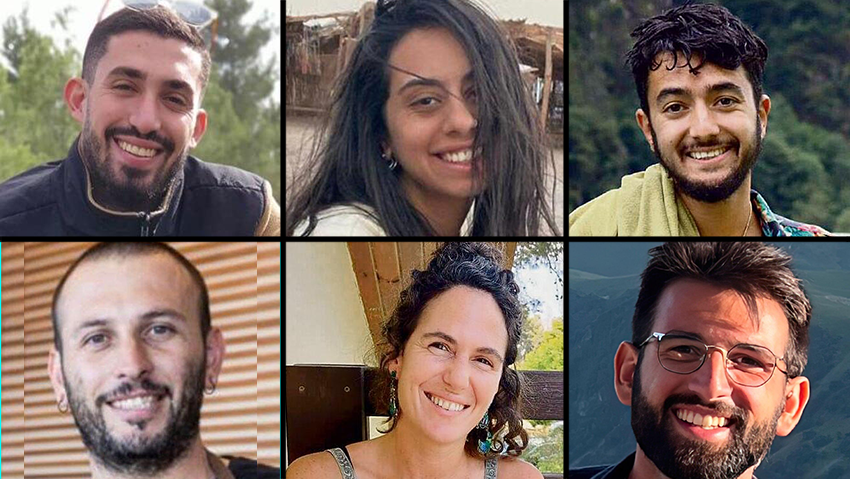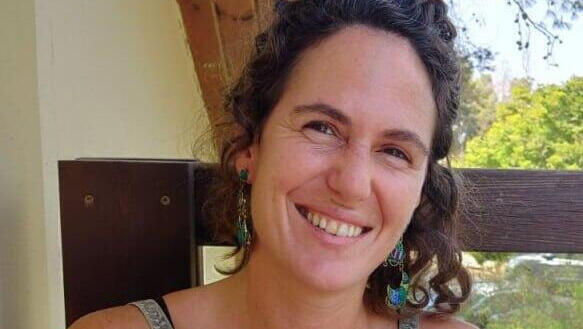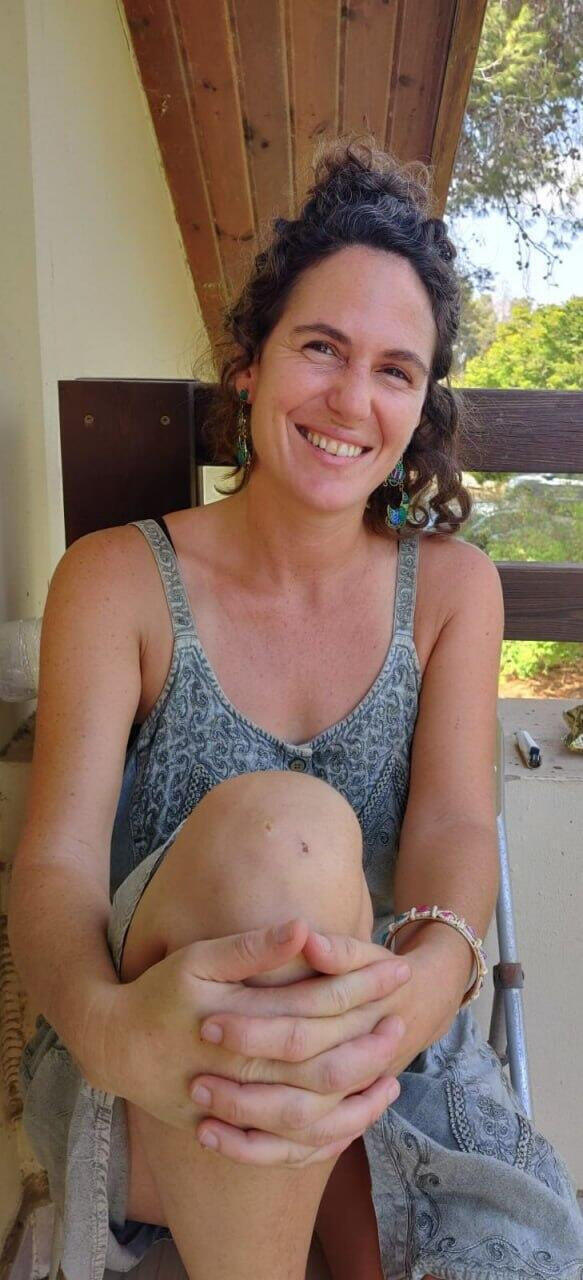What we said back then—that military pressure endangers and kills hostages, that we cannot abandon our loved ones, that a war cannot be waged while ignoring the fate of the kidnapped—rings even truer today. The sense of loss cries out to the heavens and the frustration rises again.
It all began that morning on October 7. Security neglect left the residents of Kibbutz Be’eri and innocent civilians across southern towns exposed to terrorists. Terrorists broke into our home, abducting nearly the entire family in stages: my wife Kineret, who was murdered that day near our home; my daughter Carmel; my son Alon and his wife Yarden; and their young daughter Gefen. Near the Gaza border, Alon managed to escape with Gefen, but Yarden and Carmel were taken into Hamas captivity. I, by luck, survived the attack and was rescued from the house that evening.
In total, 102 residents of Be’eri were killed in Hamas’ terror attack and 30 were abducted. The loss is immense, beyond comprehension. Amid the unimaginable grief and worry, there was a glimmer of hope: the return of my daughter-in-law Yarden from captivity offered a moment of relief—a feeling that rescue was possible. We believed it marked the start of a retrieval journey. But it soon became clear that neglect persisted. Opportunities for negotiations were repeatedly torpedoed; foreign considerations outweighed the basic value of saving lives.
Carmel Gat and her friends—Edan Yerushalmi, Ori Danino, Almog Sarussi, Hirsch Goldberg-Polin and Alex Lubanov—paid the price. Held captive for months, just when there seemed a chance to save them, the state and its leaders chose not to act—or rather, acted in the wrong direction. The prolonged wait ended in their murder. Not only them: 42 other hostages lost their lives in captivity. As we said then, at Carmel’s grave, we say again today: this should not have happened. It was not inevitable.
Carmel must be remembered. Beyond being a beloved family member, she was a healer in every fiber of her being. She chose her profession not by chance but out of a deep sense of mission. She worked with people struggling with mental health—always patient, always smiling, always understanding that every person is a world unto themselves. She earned a master’s degree at the Hebrew University, devoted herself to her studies, dreaming of combining research with clinical practice to expand knowledge for the benefit of others.
But Carmel was not only a professional caregiver. She loved music and travel, nature and people and above all possessed the rare ability to truly listen, to see others, accept differences and illuminate uniqueness rather than change it. Even in captivity, Alma Or and Noam Or, released in the first exchange, described her as their “guardian angel.” She encouraged, supported and strengthened others even while living in inhumane conditions. Her personal and professional lives merged, becoming a source of inspiration deep inside the tunnels.
A year has passed and we continue to warn: military pressure endangers and kills the hostages still alive. Every leaked photo, every account from those who returned from captivity, reminds us that hostages do not have time. Each additional day is a risk to life. We know—there was an opportunity in November 2023 and others afterward—that was missed. Every missed chance costs lives and the responsibility is clear.
This cannot continue. The weekly demonstrations are not a whim; they are the cry of an entire public. Citizens understand that the government has failed in its most basic duty—to protect the lives of its people. Instead of courageous decisions, we get narrow political calculations. Instead of a deal, sabotage. Instead of saving lives, loss.
Against this inaction stands a nation unwilling to remain silent. Carmel has, unwillingly, become a public figure. Thousands joined us at protests, chanting together: a deal now! The people demand life, not death. Responsibility, not neglect. This connection between personal story and national grief shows that the fracture is not only in our family but in all of us.
2 View gallery


Carmel Gat, Edan Yerushalmi, Ori Danino, Almog Sarussi, Hirsch Goldberg-Polin and Alex Lubanov
Alongside the struggle is a commitment to legacy. Family and friends chose to continue Carmel’s and Kineret’s paths. We have founded social initiatives to pass on their values: a yoga card set for children inspired by Carmel is already being used in schools and by the public, teaching listening, calm and mutual support. We are now planning the “Carmel-Kineret Trail,” a segment of the Israel National Trail connecting Mount Carmel to the Sea of Galilee, meant to embody the values of humanity, care, volunteering, democracy and decency. This path reminds us that behind every name and number were real women, living meaningful, giving lives.
The goal is to instill in ourselves and the next generation the values Carmel and Kineret lived by—perhaps to turn pain into strength, despair into hope.
There is no consolation in this, but there is a duty: not to forget, not to give up, not to accept what happened. This fight is not just about remembering Kineret and Carmel, Edan Yerushalmi, Hirsch Goldberg-Polin, Ori Danino, Alex Lubanov and Almog Sarussi. It is a fight over the character of our society. Are we a people who abandon the vulnerable, or a people who place the value of human life above all? Will we continue to favor political interests over moral responsibility? Will we remain silent again, or will we raise our voice to save those who can still be saved?
Carmel is gone, but her presence and memory are with us every day. Every small memory, every smile, every sentence she spoke accompanies us. We say goodbye to her over and over, each time realizing again: this should not have happened. And yet, perhaps from this pain, a different society can grow—more attentive, more humane, more determined to protect the lives of its sons and daughters. Perhaps in her light, we can save those who still can be saved.
A year has passed. Too little has changed. The simple truth remains: the hostages must be returned and the war must end immediately, before it is too late.





